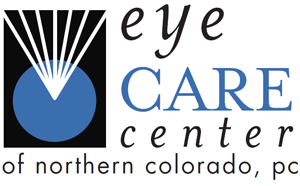Cataract FAQ
What is a cataract and how does it affect vision?
A cataract is a clouding of the lens inside the eye, causing vision loss that cannot be corrected with glasses, contact lenses, or corneal refractive surgery like LASIK.
In a normal eye, light passes through the transparent lens to the retina. That light is then changed into nerve signals that are sent to the brain. In order for the brain to receive a clear image, the lens must be clear. If the lens is cloudy from a cataract, the image you see will be blurred.
When a cataract is small, the cloudiness affects only a small part of the lens. In the beginning, you may not notice any changes in your vision. Over time, cataracts “grow”, so vision gradually gets worse and seeing becomes more difficult.
What are the symptoms of a cataract?
The most common symptoms of a cataract are:
- Cloudy or blurry vision
- Colors seem distorted or less vibrant
- Sensitivity to light
- Poor night vision
- Double vision in one eye
Do I need to have my cataract removed right away?
What causes cataracts?
Most cataracts are related to aging. By age 80, more than half of all Americans either have a cataract or have had cataract surgery. Other risk factors for cataract include:
- Certain diseases (for example, diabetes)
- Personal behavior (smoking, alcohol use, or steroid use)
- The environment (prolonged exposure to ultraviolet sunlight)
Are there different types of cataract?
Yes. Although most cataracts are related to aging, there are other types of cataract:
- Secondary cataract. Cataracts can form after surgery for other eye problems, such as glaucoma. Cataracts also can develop in people who have other health problems, such as diabetes. Cataracts are sometimes linked to steroid use.
- Traumatic cataract. Cataracts can develop after an eye injury, sometimes years later.
- Congenital cataract. Some babies are born with cataracts or develop them in childhood, often in both eyes. These cataracts may be so small that they do not affect vision. If they do, the lenses may need to be removed.
- Radiation cataract. Cataracts can develop after exposure to some types of radiation.
How is a cataract detected?
Cataract is detected through a comprehensive eye exam that includes:
- Visual acuity test to measure how well you see at various distances.
- Dilated eye exam to examine your retina and optic nerve for signs of damage and other eye problems.
How is a cataract treated?
Is cataract surgery effective?
What are the risks of cataract surgery?
How much does cataract surgery cost?
Does cataract surgery hurt?
What can I expect after cataract surgery?
Your doctor will provide a protective eye shield to wear the day of your procedure as well as while sleeping for the first few days. You will be given prescription eye drops to use for a month following the procedure. For the first week after surgery avoid strenuous activity, swimming, or anything that exposes your eye to dust or dirt. Also, avoid eye makeup for three days prior and one week after surgery.
Many patients experience vision improvement the day after cataract surgery; however, it may take a month or so for the full effect of improved vision. If you still require glasses after surgery, your eyeglass prescription may need to be updated.
